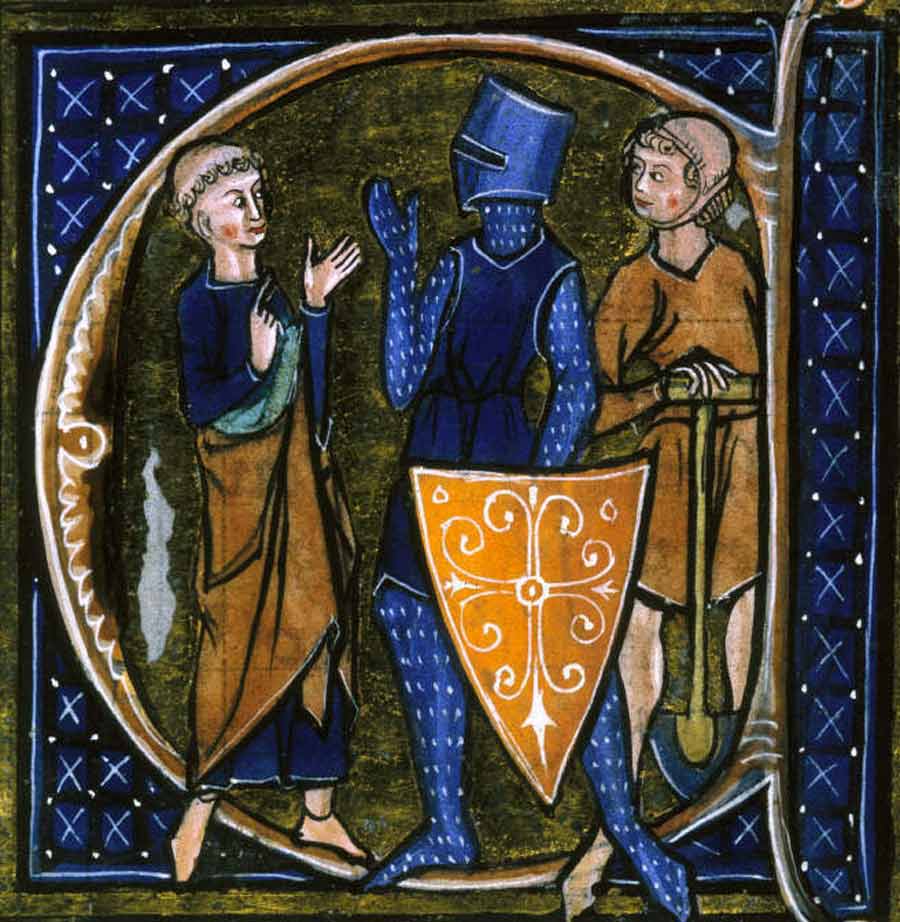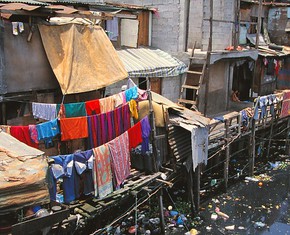The views expressed in our content reflect individual perspectives and do not represent the authoritative views of the Baha'i Faith.
The author and social historian Paul Fussell, in his renowned book Class, said “We’re pretty well stuck for life in the class we’re raised in.” Do you think that’s true?
We know that in most old cultures—and in many that still exist—society separated people into a fixed, immutable, inherited hierarchy of distinctly different classes. Those social or economic ranks often had very pronounced borders. No one, or at least very few, could cross them. If you were born into a wealthy, moneyed class, you stayed there, regardless of your current conditions. If you were born poor, upward mobility was difficult if not impossible.
In India, for example, the caste system has long defined rigid social groups inherited at birth. Called jatis, which means “birth groups,” they strictly delineated and limited what people could do in life, in terms of education, marriage and even employment.
So what do the Baha’i teachings say about class? In the future, the Baha’i writings predict:
… the inordinate distinction between classes will be obliterated. Destitution on the one hand, and gross accumulation of ownership on the other, will disappear. – Shoghi Effendi, The World Order of Baha’u’llah, p. 203.

A 13th century French representation of the tripartite social order of the middle ages – Oratores: “those who pray”, Bellatores: “those who fight”, and Laboratores: “those who work”.
To understand how that might happen, or even be possible, let’s explore the history of class systems for a moment. Called “the estates of the realm” in the Middle Ages, the best-known “three-estate” system came from the part of Europe we now call France. That medieval society considered its Christian clergy as the first estate; the nobility and warriors as the second estate; and the commoners as the third estate. French law defined them this way—1.) the Oratores, the orators, or “those who pray,” 2.) the Bellatores, the nobility and its soldiers, or “those who fight,” and 3.) the Laboratores, the laborers, “those who work,” chiefly in agriculture. Church, nobility and townsmen, some called the three-estate class system.
In early British history, those three classes even translated into the three “estates” of Parliament: “The Lords Spiritual,” “the Lords Temporal” and “the Commons.” (The Scottish philosopher and writer Thomas Carlyle named the news media “the Fourth Estate,” and said “in the Reporters’ Gallery yonder, there sat a Fourth Estate more important far than they all.”)
If you were born into those societies, you were also born into one of those estates or orders, and you were usually destined to die as a member of that same class.
For understandable reasons, people didn’t much like this fixed class system—especially those born into the “lower” class. Because the first and second estates ruled and invariably repressed the vast majority of “third-estate” commoners—who made up more than 90% of the population—the commoners rose up and overthrew them. This movement started with the French revolution in 1789, and it profoundly affected the course of the planet’s history, leading the way for a mass transition to democratic republics over the course of the next two centuries.
You can readily see the remnants of these birth-based class systems in many places. From England’s House of Commons and House of Lords today, to the hierarchical caste systems in places like India, Nepal, Pakistan, Yemen and Sri Lanka, humanity still holds on to the ancient, outmoded ways of separating people into classes. In some so-called modern societies, we now divide and categorize people through distinctions of wealth or skin color or celebrity rather than by inherited position—so class distinctions still keep us apart, much as they did in the old estate system.
The Baha’i teachings call for an end to the archaic practice of separating people into rigid classes or castes, replacing them with the rise of human equality everywhere:
Praise be to God, that the gloomy nights of ignorance have flitted away across the receding ages, and the bright dawn of intelligence and wisdom is becoming visible. Praise be to God, that the cold winter of fanaticism and bigotry, with its chilling hand and irrational heterodoxy has come to an end, and the soul-refreshing springtime of the imperishable flowers and hyacinths of universal love and toleration, has dawned, perfuming all the nostrils with the sweet odours of trust and confidence. Praise be to God, that the black clouds of human limitations and man-made restrictions are dispelled, and the world-enlightening Sun of the Kingdom hath dawned from the horizon of the hearts! Praise be to God that the chains of injustice and the fetters of the oppression of the Pharaohs of the earth and the despotic rulers of men have crumbled to dust, and the age of justice, equity, brotherhood and real democracy is inaugurated. Praise be to God that the crowns of the despots have fallen to the earth, and the thrones of the absolutists are shaken to the foundation. But the real diadems of glory and power and the royal seats of just governments and democratic institutions were raised high. – Abdu’l-Baha, Star of the West, Volume 6, pp. 111-112.
How, then, do we get rid of the old class distinctions—and the new ones, too? When Karl Marx wanted to establish a “classless society,” the governments based on his principles sanctioned the use of violence to accomplish their ends. The Baha’i teachings recommend a completely different method based on spirituality and altruism:
In the Bolshevistic principles equality is effected through force. The masses who are opposed to the people of rank and to the wealthy class desire to partake of their advantages.
But in the divine teachings equality is brought about through a ready willingness to share. It is commanded as regards wealth that the rich among the people, and the aristocrats should, by their own free will and for the sake of their own happiness, concern themselves with and care for the poor. This equality is the result of the lofty characteristics and noble attributes of mankind. – Abdu’l-Baha, Foundations of World Unity, p. 43.
This kind of spiritual class-crossing, which encourages every person to willingly transcend the social class they were born into, asks each one of us, no matter which societal class we occupy, to transcend, transform and obliterate the class distinctions that keep us apart.
You May Also Like
Comments

















Also, I had iPad issues so switched to a Chromebook and a new email, [email protected] which is why I haven't been commenting for a few months, but I have read the articles from when my tech was down and ...am caught up now.
The Sultan and the Saint movie involves St Francis of Assisi who himself transcended the class he was born into.